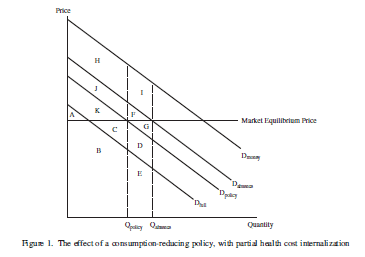April 18, 2014
Just when you thought the Obama Administration's (non) handling of e-cigarettes could not get any more dysfunctional, the FDA posted this announcement on its website on Friday afternoon April 18, 2014:
A Special Statement from CTP [FDA Center for Tobacco Products]
04/18/2014
Updates from the Center for Tobacco Products
The FDA has not issued its proposed rule regarding what additional tobacco products should be regulated by the agency. We are aware that the Tobacco Vapor Electronic Cigarette Association has indicated publicly that they have a copy of our proposal. The proposal is still in draft form and under review. As a matter of policy, the FDA does not share draft rules with outside groups while a rule is still under review.
April 17, 2014
On April 14, 2014, several members of Congress released an important report, Gateway to Addiction: A Survey of Popular Electronic Cigarette Manufacturers and Targeted Marketing to Youth, in which they surveyed the major e-cigarette companies about their advertising and promotional activities (and, when the companies ignored requests for information collected information directly from their websites and other sources). The report' findings are:
Major findings:
April 17, 2014
While the Obama White House sits on the FDA, communities all over the country are moving forward to control e-cigarettes in two important ways (1) including them in clean indoor air laws, and (2) regulating sales to youth.
The tobacco companies (and make no mistake, it is the big tobacco companies) are mounting a nationwide push to preempt (take away the rights of) local communities to enact this sensible legislation. And, as they did in the 1980s, the tobacco companies are using legislation that nominally protects kids from e-cigarettes as "Trojan Horse" legislation to enact preemption and other bad policies (such as making it harder to tax e-cigarettes).
This issue is very hot right now in Florida, where the industry is pushing House Bill 169 that would do just that.
Flordia was the first state, back in the 1980s, to pass a state law preempting clean indoor air after communities started passing strong, for the time, local laws. Unfortunately, Big Tobacco won that victory with the help of the health organizations who were unwilling to cross powerful legislators aligned with the cigarette companies. It took decades to get a strong state clean indoor air law and bars remain preempted.
April 17, 2014
On March 24, 2014 Navy Times reported that Secretary of the Navy Ray Mabus was pushing to have Navy and Marine Corps commissaries and exchanges stop selling tobacco products. When asked about this proposal, Secretary of Defense Chuck Hagel supported it, saying that more tobacco control measures should be considered, including the establishment of smoke-free military installations.
Research by Libby Smith, Ruth Malone, and their colleagues here at UCSF into the history of military efforts to establish strong tobacco control policies shows that we should expect the next step to be Congress blocking any attempt to restrict the tobacco industry’s pursuit of the military market, deploying language about the “freedom” to smoke, the “rights” of military personnel to use tobacco, and the necessity of tobacco for “stress relief:”
April 13, 2014
I have prevously written about the serious problems with the way that the FDA has done cost-benefit analysis of the effects of tobacco control policies, most notably warning labels on cigarette packages. Among other things, the FDA, led by economist Clark Nardinelli, assumes that steps that will reduce smoking have the effect of depriving smokers (and potential smokers) of the "pleasure" of smoking, quantified using the economic idea of "consumer surplus." Counting this lost pleasure as a cost led the FDA to substantially discount any health benefits of stopping (or not starting smoking), which made the regulation harder to defend in court..
